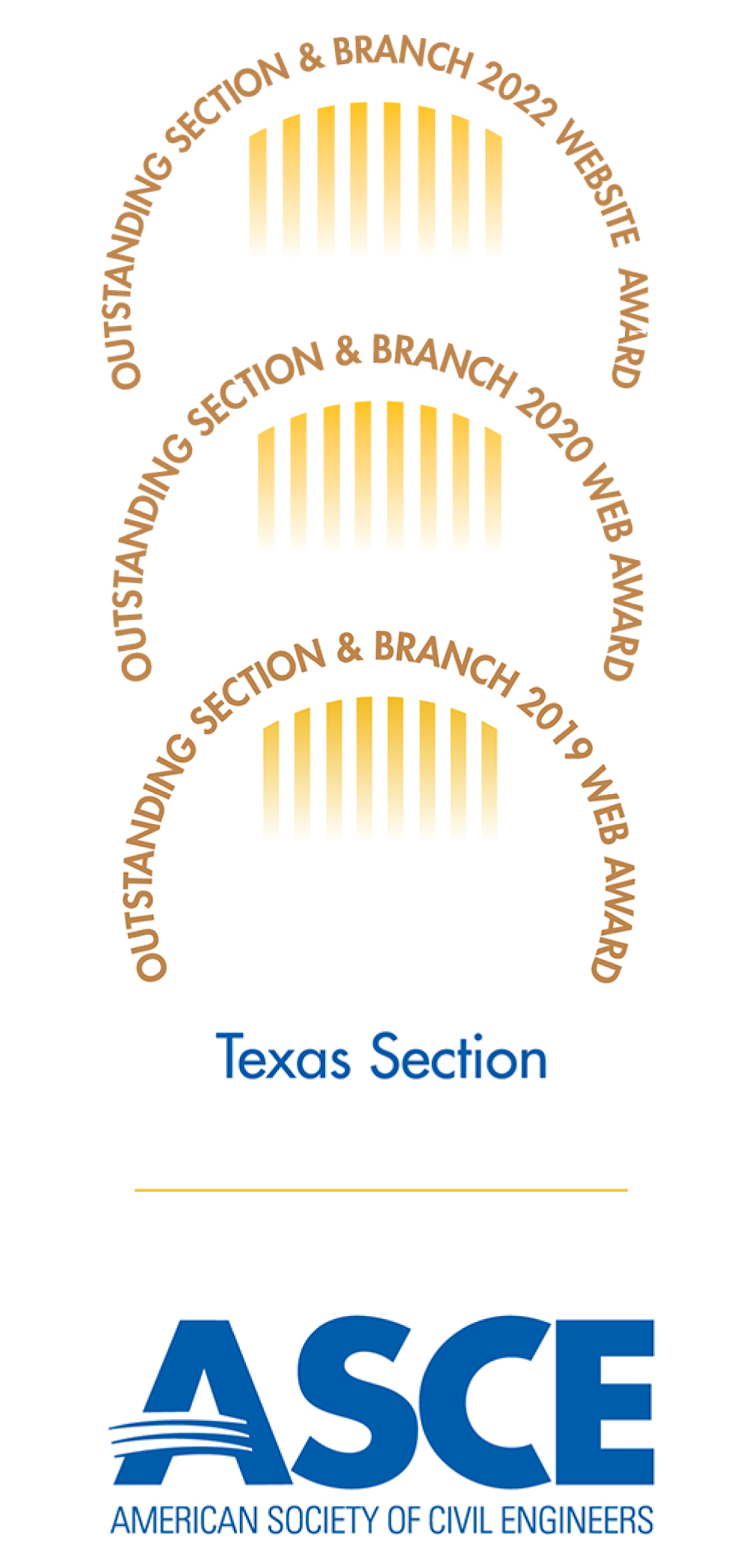Texas 2019 Constitutional Amendment Election Results Summary
On November 5, 2019, Texans took to the polls to vote on 10 State Constitutional Amendments. ASCE specifically supported Propositions 2 & 8 and the organization is delighted to see that the public spoke loudly in support of infrastructure improvements for the State. The results of those propositions voted on are summarized below:
Proposition 1: REJECTED (65%)
This proposition would have allowed elected municipal judges to serve in more than one city at the same time. This means that only appointed municipal judges (which make up more than 95% of the state’s municipal court judges) can serve in multiple jurisdictions at the same time.
Proposition 2: APPROVED (66%)
Allows for the Texas Water Development Board to issue up to $200 million in bonds to increase their funding for water and sewer project in economically distressed areas, where the median household income is at or below 75% of the statewide median income level.
Proposition 3: APPROVED (85%)
Allows for the legislature to create temporary property tax exemptions on properties that are damaged in disasters declared by the Governor. The legislature now has the ability to pass laws which determine the eligibility, duration and amount of any write-offs.
Proposition 4: APPROVED (74%)
Prohibits the state from imposing or collecting an individual income tax unless a super majority is achieved in the House and Senate and a majority is achieved from Texas voters.
Proposition 5: APPROVED (88%)
Texas voters want dedicated funding for our State Parks with passage of Proposition 5. The amendment ensures the state’s sales tax revenues from sporting good are appropriated to the Texas Parks and Wildlife Department and the Texas Historical Commission to provide a dedicated funding stream for parks and historic sites.
Proposition 6: APPROVED (64%)
Texas voters agree to allow the Cancer Prevention and Research Institute of Texas to take out an additional $3 billion in debt, doubling its initial bonding authority since its creation in 2007 with passage of Proposition 6.
Proposition 7: APPROVED (74%)
Texas voters supported the amendment to allow the General Land Office and State Board of Education to each transfer $600 million from the Permanent School Fund’s lands and properties proceeds to the Available School Fund each year. These funds allow the General Land Office, the State Board of Education and other entities to double the amount of revenue they can give to the Available School Fund each year. The Available School Fund provides classroom materials and funding for Texas schools.
Proposition 8: APPROVED (78%)
Texas Proposition 8 creates a constitutional amendment to create a flood infrastructure fund, which would provide financing for flood drainage, mitigation, and control projects. It was unanimously approved in the state legislature, and comes with an accompanying bill, SB 7. It will govern the rules for how such a fund would be dispersed.
Proposition 9: APPROVED (52%)
Texas Proposition 9 allows the legislature to exempt precious metals held in precious metal depositories from property taxation. It also enacts an accompanying House bill that would govern the definition of such metals. The facilities that store them often charge a fee for the storage of these precious metals.
Proposition 10: APPROVED (94%)
Texas Proposition 10 deals with the retirement of service animals, such as dogs or horses. Previously, when they are removed from service, such animals are classified as salvage or surplus property, which means they can be auctioned, donated, or destroyed. Now the designation of these animals will change and allow the animal to be transferred to its handler or another individual, if such a transfer is in the animal’s best interest. More than 90 percent of Texas voters were in favor of this proposition.

Apply for the 2020 Legislative Fly-in
Applications will be accepted for the 2020 Legislative Fly-In until November 21, 2019!
The Legislative Fly-In is your opportunity to join 200+ fellow Key Contacts in Washington, DC on March 11 and 12, 2020 for two legislative trainings and meetings on Capitol Hill. Before you make plans to attend, you must first apply. The 2020 Fly-In program includes:
- Meetings on Capitol Hill with your Members of Congress or their staff
- Briefing sessions on key legislation active in Congress.
- Training on lobbying and influencing elected leaders
- Networking with ASCE peers from across the country
- Tips on maintaining relationships with your elected officials once you return home
The best participants are active Key Contacts, those interested in advocating on behalf of ASCE and our Priority Issues, and those who are willing to continue to foster relationships with legislators and their staff when they return home.
Need a little help with your application? Check out our FAQs, our webinar recording, or reach out with any technical difficulties.
ASCE Texas Section – Government Affairs Local Liaisons
The Section level Government Affairs Committee is seeking to build a more grassroots effort spanning the entire State of Texas through the local branches. As a Local Liaison you will assist the in passage of information from the Texas Section to your local branch and vis versa on topics either from the State or municipal level related to Civil Engineering. You will also assist in the efforts of the Texas Section in things like outreach events, submitting testimony and serving as the voice of ASCE in your local community. If you are interested in becoming a Local Liaison please contact the Texas Section Government Affairs Chair Augustine Verrengia at [email protected].
Share this story:








